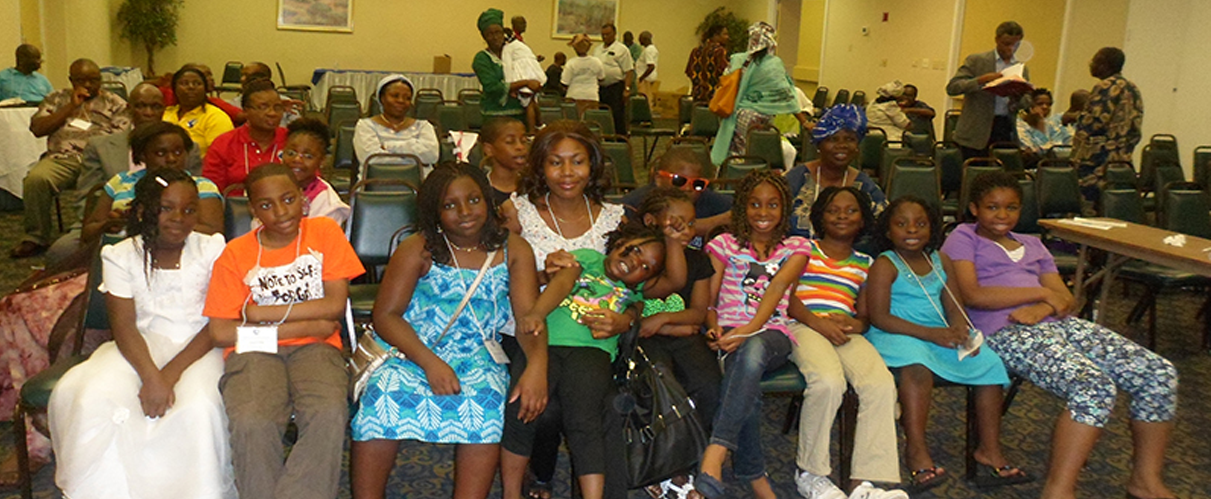You can instill an attitude of thankfulness in your children. (ECWA Archive)
As I'm writing this, it's a week before Thanksgiving, but I already have my turkey thawing in the refrigerator. My menu is simple: turkey, ham, potatoes, sweet potatoes, green beans, pie. The recipes are ones I've been making for 20 years—nothing fancy here. Our table will be set like any Sunday dinner. I'll even admit I don't have one turkey decoration in our whole house.
Instead of planning for a party, my focus this month has been on my idea of nixing the entitlement attitude in our family. Yes, I'm thankful for all I have, but is it possible to take that thankfulness one step further and try to root out my entitlement attitude? I think so.
I haven't been making holiday crafts; instead I've been cleaning out my closets. Three large garbage bags of clothes have already gone to the teen moms that I support. These are nice clothes, name-brand clothes … but do I need them all? No, I don't.
I've been trying to pass down this idea to my kids too. I get on them all the time about all their wants. That's all I hear from them at the store: "I want. I want!" I don't act that way, of course, but that's because when I want something, it's easy just to put it in the cart. I'm not pouting, mostly because I have the money to enjoy that little treat. After all, what's another $2.99 going to hurt?
It hurts because I'm not modeling good stewardship to my kids. So instead of throwing things in my cart, I've been confessing my own desires. And today, instead of buying things for us, we purchased gifts for three kids through Angel Tree. My kids were so excited about their purchases … and they truly were thankful givers! (You can find out how to donate to Angel Tree here.)
In addition to taking the focus off our own wants, there are a few other things to stop entitlement and be truly thankful in my family. Some ideas are mine, and some are from Facebook friends!
1. Teach cooperation. The reality of life is that we often have to cooperate with others. We are not the center of our world. The family who works together at home raises children who know how to do that through life.
2. Teach the value of money. Teaching kids to bargain shop helps them to understand the value of money. From the time our kids were small, we only shopped in stores we could afford, and even then we went straight to the clearance racks. We also shop at yard sales and secondhand stores. When shopping, give your older kids a set amount of money to manage. If they only want one pair of designer jeans instead of four generic pairs, that's a decision he or she will have to live with.
Guide teens to consider the less fortunate. "I use sites like the Girl Effect and World Vision to teach the teens in my life about poverty," says Alyson, mother of two. When teens understand poverty, they also know how much they have and grow generous hearts. Our daughter Leslie, now 22 years old, started sponsoring a child when she was 14 and has been faithful to give.
3. Be available. "If you're going to hold back from things we consider 'entitlement,' filling in the gap is important," says Jennifer, mother of three. "If you can't get them a car, then provide your teens with the security that you will help [them] get where they need to be and be open to picking up friends. If you can't buy designer clothes, help them pick up a few nice pieces and put outfits together." Show your teens that you are available and that you are all part of a team.
4. Encourage positive friendships. "My daughter is 16 years old, and she has no cell phone, no car, no designer clothes," says Diane, mother of two. "One of the biggest helps in this area has been choosing friends wisely. Since most of the kids in her 'peer group' are from like-minded families, we've been able to avoid a lot of those issues."
How about you? Have you thought about how to be truly thankful by cutting out entitlement in your family? It's great to be thankful this time of year … but it takes work to live it out day to day!
Editor's Note: This story was original published in November 2013.
Tricia Goyer has written more than 35 books, including both novels that delight and entertain readers and nonfiction titles that offer encouragement and hope. She has also published more than 500 articles in national publications such as Guideposts, Thriving Family, Proverbs 31, and HomeLife Magazine.

